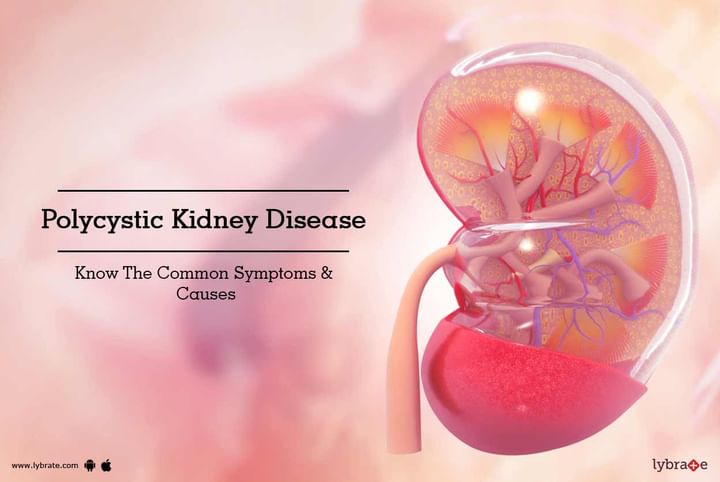Get the App
For Doctors
Login/Sign-up
Last Updated: Oct 23, 2019
BookMark
Report
Polycystic Kidney Disease: Know The Common Symptoms And Causes
Dr. GarimaGeneral Physician • 4 Years Exp.MNAMS (Membership of the National Academy) (Ophthalmology)
Polycystic kidney disease is a genetic disease. It causes growth of cysts inside your kidneys. These cysts tend to make the kidneys much larger than they ideally should be and damage the tissue that the kidneys are made of. Also, polycystic kidney disease can lead to chronic kidney disease, which as a result could result in kidney failure, or end-stage renal disease.
Symptoms of polycystic kidney disease
- High blood pressure
- Back pain or pain in sides
- Headache
- A feeling of fullness in your abdomen
- Increased size of your abdomen due to enlarged kidneys
- Blood in your urine
- Kidney stones
- Kidney failure
- Urinary tract or kidney infections
What causes polycystic kidney disease?
This disease is caused because of the presence of defective genes in the body, which means that this disorder is primarily hereditary. In some cases, the disease is caused by a genetic mutation.
Based on the causes, polycystic kidney disease is classified into two types:
- Autosomal recessive polycystic kidney disease: This disorder causes the symptoms to appear right after birth, although the symptoms are delayed until adolescence. This disorder only occurs when both the parents carry the defective gene which is passed to the offspring.
- Autosomal dominant polycystic kidney disease: This disorder usually tends to occur only after the age of 30. Unlike the previous type, here only one parent has the defective gene that is passed on to the offspring.


+1.svg)
